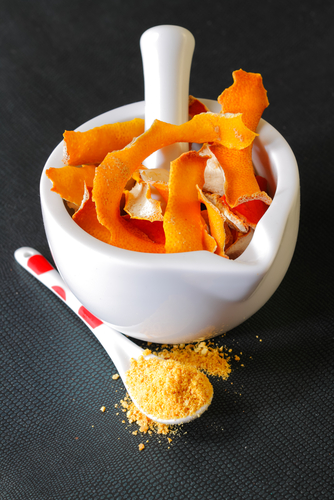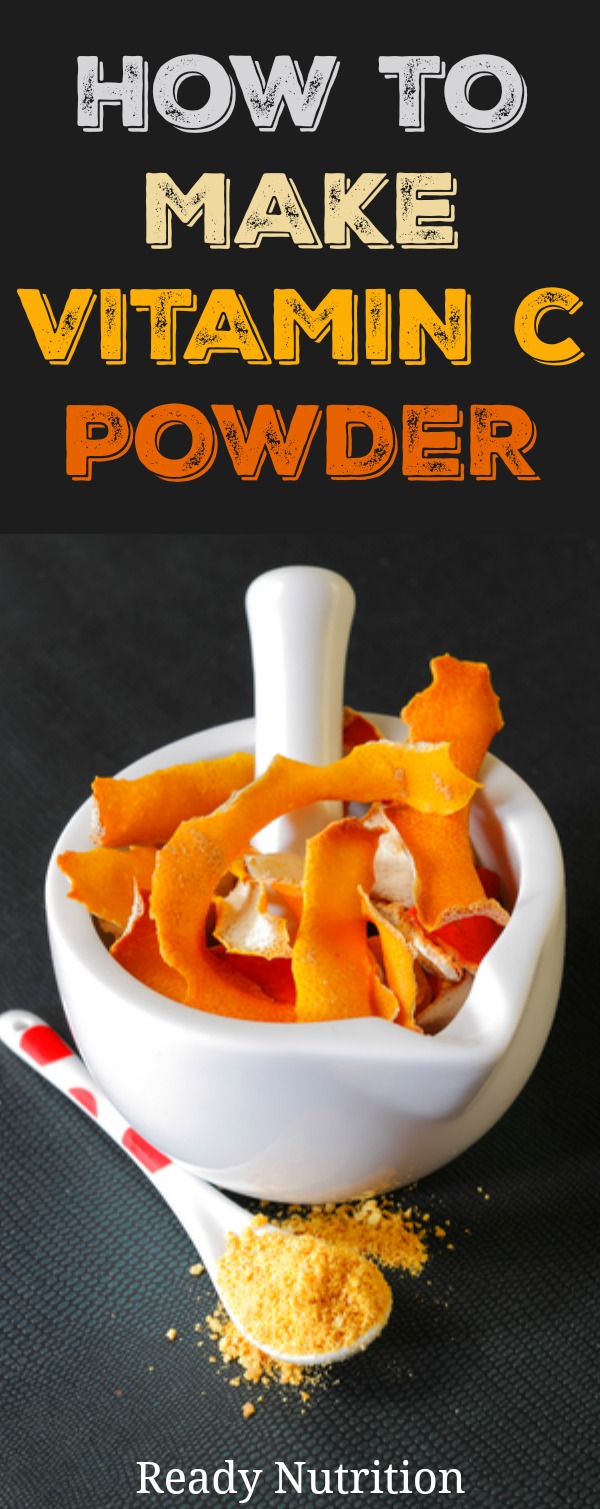 Our current diets create a platform for receiving ample amounts of nutrition, but what if that all goes away?
Our current diets create a platform for receiving ample amounts of nutrition, but what if that all goes away?
Having proper doses of vitamin C is essential for bone, muscle, cartilage and vascular health, not mention great for our dental health and immunity system. The fact that our bodies do not make vitamin C makes this an important nutrient to have on hand.
A Must-Have For the Flu Season and Prepper Supplies
Vitamins are a major must-have for our preparedness supplies; especially when preparing for long-term emergencies. You should be using and rotating your vitamin supplies regularly through your food storage pantry and discarding them after the expiration date. The speed with which vitamin C degrades depends on a number of factors and even expired vitamin C is “safe,” though it may not be effective. That said, in an emergency situation, your vitamin supplies will be extremely important and you do not want to go into a long-term situation with expired vitamins. Without proper nutrition, malnutrition will set it in and can be problematic. The correlation of malnutrition during emergencies has happened throughout history. For instance, during the turbulent times of the Great Depression, malnutrition was at the forefront of health issues and as a result, many suffered short and long-term effects of this health problem.
Store Bought Vitamin C May Not Be The Most Nutritious Option
Currently, the vitamin C you purchase the grocery stores are riddled with genetically modified corn and benign filler chemicals that serve as binding, coating and lubricating agents. This doesn’t sound very nutritious, does it? You can easily make your own vitamin C that will contain live enzymes that allow the vitamin C to be 100% assimilated into your body. It also has its own natural source of rutin, hesperidin, and bioflavonoids.
Bulk citrus peel granules can be purchased to save on time.
Make Your Own Vitamin C Powder
You can easily make vitamin C using the bi-product of our favorite citrus fruits. Any organic citrus peel will work.
- Slice or grated lemon peel. I usually grate my peels with a microplane grater and allow it to sit in a window for a few days. If you cut your peels into long strips, you can also use a dehydrator and the heat from the dehydrator will not harm the enzymes. This method is also ideal if you want to store your dried peels in a closed canning jar for longer-term storage for up to 1 year.
- When you are ready to use your dried peels, break up peels into smaller pieces. If the peels are large, break apart and use a coffee grinder. If the peels are small enough, use a mortar and pestle to powder the peels.
- Use 1 rounded teaspoon for a daily supply of organic vitamin C complex, rutin, hesperidin, and bioflavonoids than your body needs for the day, regardless of your size.
To use lemon peel powder:
Add 1 rounded teaspoon your favorite beverage, smoothie or on top of salads. Caution: Be careful about adding this powder to hot drinks or meals as the heat destroys the enzymes.
In a survival situation, if you are not lucky enough to have invested in a few citrus trees, you can also make pine needle tea to provide you with vitamin C, but the above method is a tastier option.
To conclude, investing in vitamin supplements is very important in order to maintain a healthy body, and ensure your energy levels are at their peak in the event of a long-term emergency. Further, making your own vitamin C powder will allow it to be fully absorbed into your body without any added fillers. Start making a point to keep your body as healthy as possible using as many natural foods as possible.

This article was originally published at Ready Nutrition™ on August 2nd, 2014







Really GOOD advice!
This is a copy of an article I keep finding in my search. It makes some statements that aren’t backed up anywhere. Very suspect information.
Suspect HOW? I do, however, find an error: in ALL commercial vitamins and in vitamins added to other foods, you’ll find under Vitamin C or pointed up by an asterisk, thusly: *as ascorbic acid . Well, ascorbic acid is NOT vitamin C – it”s the outer, protective layer of vitamin C under which are four or five other vitamins that protect against pneumonia (and enhance as well as heal the lungs and increase their efficiency! As far as I know too, liposomal encapsulated C is ascorbic acid ONLY. This citrus peel “C” is FAR better than anything store-bought as far as I can see!
WOW! This is really great, knowing how to make your own Vitamin C
how long does homemade vitamin C powder last? How do you store it?
Hi Paula,
Vitamin C orange peel powder can last for up to three years. Thanks for your question.
Tess